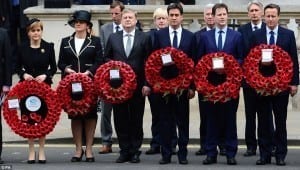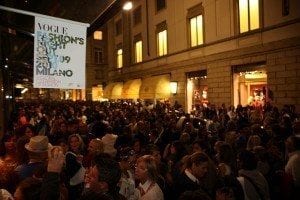
David Cameron Reelected while Ed Miliband, Nick Clegg, and Nigel Farage Resigns
It was widely speculated that the May 7 elections would result in another hung parliament, where the ruling party would be forced into a coalition with other factions. Leading up to the election, it was also predicted that the UK Independence Party (UKIP) and the Scottish National Party (SNP) would become important factor in the election. The exit polls predicted the conservatives to receive 316 seats, labour 239, the Scots 58, Liberal Democrats 10, and UKIP 2.
Tories Emerge Victorious
In the conclusion of the election, Cameron clearly won and will return to No. 10 Downing Street for a second term. The Conservative Party managed to win 331 seats out of 650 seats in the House of Commons. This was 12 seats better than what the exit polls predicted.
In 2010, the conservatives were forced into a coalition with the Liberal Democrats. This time around the conservatives managed to win enough seats (over 326 but technically 323 since Sinn Fein never sits in parliament) to secure a majority government on their own.
On Friday, Cameron went to Buckingham Palace to formally ask the Queen for permission to establish a new government.
He said in a speech, “As we conduct this vital work we must ensure that we bring our country together. As I said in the small hours of this morning, we will govern as a party of one nation, one United Kingdom.”
Cameron now faces keeping intact the United Kingdom and deciding whether or not Britain remains in the European Union. Cameron’s victory means that the UK will have a referendum in 2017 to decide whether they will stay or leave the European Union. Cameron also seeks to negotiate with the Scots to prevent the Union from disintegrating.
Labour Future Uncertain
The direction of the British Labour Party is one of uncertainty. Labour was routed from Scotland, keeping only one constituency in face of an overwhelming SNP victory. Traditionally Labour was able to rely on its +50 seats in Scotland but its situation now ensures that Labour will have problems securing a majority of seats.
Doing worse than the exit polls suggested, Labour only retained 232 seats. Labour had failed to make significant gains in England and was dealt a tremendous blow in Scotland by the SNP.
Ed Miliband resigned as the head of the Labour Party. In a speech on Friday he said, “I take absolute and total responsibility for our defeat. I am so sorry for all of those colleagues who lost their seats.”
Shadow foreign secretary, Douglas Alexander, had lost his seat. Mhairi Black, a 20 year old undergraduate student representing the SNP, had unseated him.
Gordon Brown’s former seat of Kirkcaldy and Cowdenbeath had also been lost to the SNP. The Scottish Labour Party Leader Jim Murphy had also lost his seat to the SNP.
In defiance of the face of defeat, Miliband concluded, “This party has come back before and will come back again.”
However, much remains to be fixed for the left.
You should also read: Third round republican presidential debate recap
“There is no point changing the captain on the bridge if the ship is heading in the wrong direction,” said John Reid, who was defense and interior minister under former Labour Prime Minister Tony Blair. Blair also stated that should Labour present itself as the traditional left party in opposition to the conservatives, it would continue to face defeat.
The Rise of Scottish Nationalism, Decline of the Liberal Democrats, and Failure of UKIP
The biggest winners, well next to Cameron, would definitely be the Scottish National Party. Sweeping Scotland, the party had gained 50 seats in this election and nearly kicked the Labour Party out of the north. Nicola Sturgeon had pledged to support a Labour government, though the Tory majority had prevented that scenario.
Nick Clegg, leader of the Liberal Democrats, had resigned. The party went from 57 seats in 2010 to 8 this election. Lord Ashdown who did not believe the exit polls grave forecast for the ‘Lib Dems’ had pledged to “publicly eat his hat” if the results proved true, which it has. Clegg, while retaining his seat, added that “fear and grievance have won, liberalism has lost.”
Nigel Farage head of UKIP had also resigned. Despite third in total number of votes received, UKIP had only won one seat in parliament.















